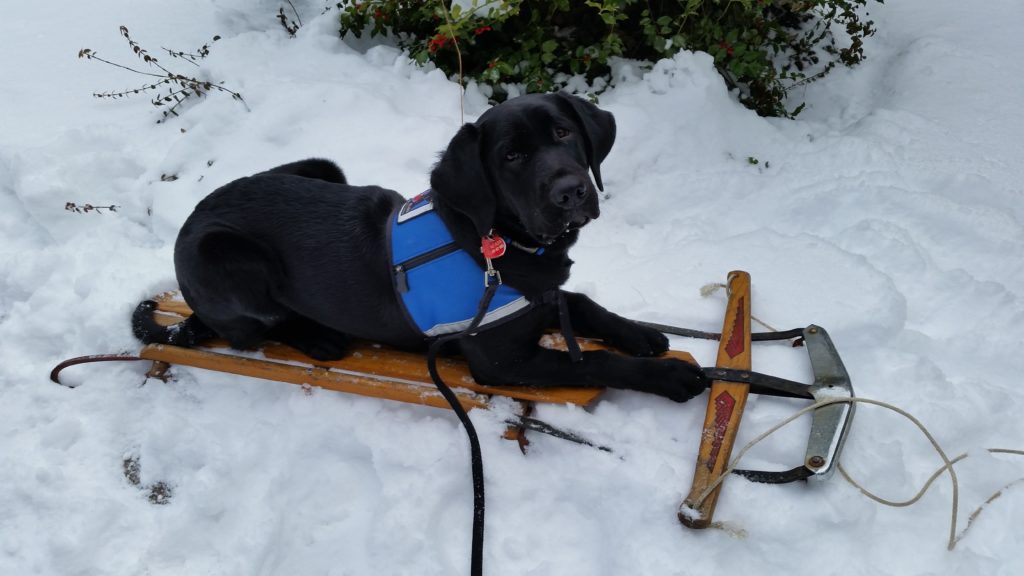Ask the Vet: Protecting Pets from the Winter Cold
November 9, 2017
As the temperature drops, it can make life unpleasant for everyone – including our four-legged friends. That’s why owners need take precautions to protect them when the mercury dips below freezing.
But that doesn’t mean you have to spend the winter months huddled inside. Here are some ways to protect pets from conditions such as frostbite, as well as other hazards such as de-icers and highly toxic antifreeze.
- The most common-sense tip: don’t leave your pets in the cold for too long. Fur coats won’t protect them from prolonged exposure. Monitor your pets and bring them inside if they start to shiver or if you see redness in their tails or ears (which could be frostbite). Once inside, help them get the ice out from between their toes.
- Be extra careful when walking or playing with your dog near frozen lakes, rivers, or ponds. Never allow your dog to walk across a frozen body of water.
Ice and snow mask familiar scents and paths. Keep pets on leashes so they don’t get confused and lost. Be sure your dogs and cats are wearing identification tags. And don’t forget to have pets microchipped. (NEADS clients will always have their dogs on-leash or in a fenced-in area.) - If you spread a de-icer on your driveway or sidewalks, find one that’s pet-friendly (or consider switching to sand or cat litter). Various toxins and even salt can cause problems for pets, who tend to lick the substances off their paws.
- Thoroughly wipe your dog’s paws and belly with warm water when they come in, just in case they’ve picked up road salt, antifreeze, or other chemicals that could be licked off.
- Keep your dog dry. A wet coat will make him colder, so keep some old towels on hand.
- Don’t leave your dog alone in a car while you go into the store. It’s a bad idea in the heat, and it’s a bad idea in the cold. (Of course, NEADS clients will always have their Service Dogs with them in public situations.)
- Your dog will never tell you, “Oh, my arthritis acts up in the cold.” And yet, it does. If your pet is older or has arthritis, you may want to skip the long walks. Dogs with arthritis will be more stiff and sore in frigid temperatures. Also, make sure your pets have soft, warm bedding.
By Kristina DePaula, DVM, DACVECC – Medical Director, BluePearl Veterinary Partners – Waltham. In partnership with NEADS.

